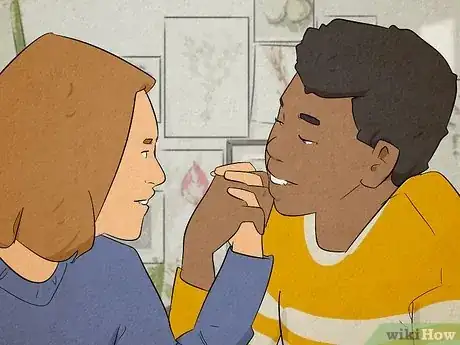This article was co-authored by wikiHow staff writer, Devin McSween. Devin McSween is a wikiHow Staff Writer. With a background in psychology, she has presented her research in social psychology at a variety of conferences and has contributed to several manuscripts for publication. At wikiHow, Devin combines her love of writing and research with the goal of bringing accessible information to wikiHow readers that will help them learn and grow. She earned her BS in Psychology from the College of Charleston.
There are 9 references cited in this article, which can be found at the bottom of the page.
Learn more...
Just as you’re daydreaming about your partner, they send you a romantic text calling you their beloved. Their words have got you feeling all warm and fuzzy…but what exactly does beloved mean? And how is it different from just plain old love? You’ve come to the right place to find out! We’ll tell you what each word means and go over the main differences between them. Read on to learn more!
Things You Should Know
- Love is a strong, positive emotion that means you adore someone or something.
- Beloved means you love someone or something very deeply and dearly.
- Beloved is a more intense way to describe things that you care for than love.
- Love refers to people and things you like a lot, while beloved describes people and things that are incredibly meaningful to you.
Steps
References
- ↑ https://dictionary.cambridge.org/us/dictionary/english/love
- ↑ https://www.dictionary.com/browse/loved
- ↑ https://www.merriam-webster.com/dictionary/beloved
- ↑ https://dictionary.cambridge.org/dictionary/english/beloved
- ↑ https://dictionary.cambridge.org/dictionary/english/love
- ↑ https://grammarhow.com/beloved-vs-loved/
- ↑ https://dictionary.cambridge.org/us/dictionary/english/love
- ↑ https://dictionary.cambridge.org/us/dictionary/english/beloved
- ↑ https://www.vocabulary.com/dictionary/loved































































